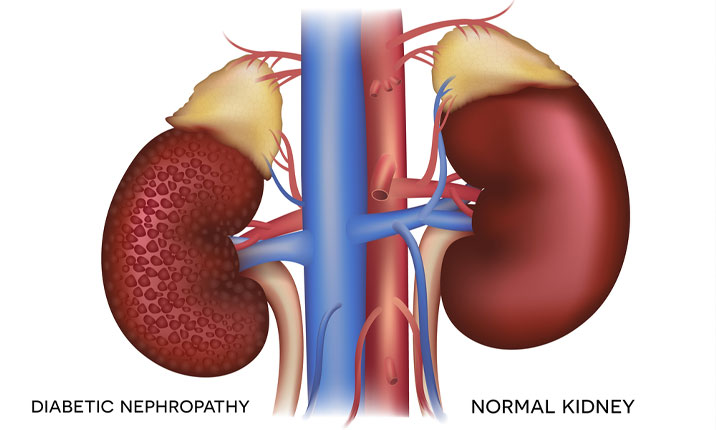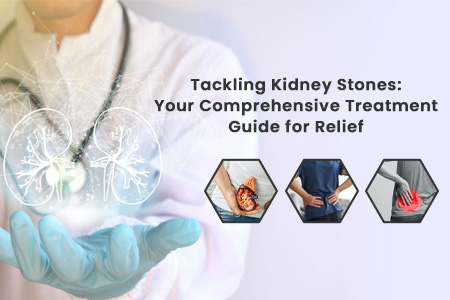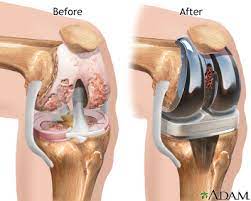
 2022-07-23
2022-07-23
Have you ever wondered what happens to the water, beverages, or other fluids we consume?
Have you ever felt inquisitive about how we urinate? Why is it in a liquid state? Why does its color change as per our diet, medication, and amount of liquid intake?
Have you ever asked anyone, what would happen if we don’t urinate? Or often hold urine longer?
These might be some interesting questions to know about if you don’t know the Kidney, its functions, and its importance.
Here is some brief information about Kidneys. These are bean-shaped, fist-sized organs, that exist as a couple on either side of the spine just below the ribcage. Kidney tissue is formed by the collective basic units of cells called Nephrons. These are responsible for the filtration and retention of essential nutrients and excretion of wastage from the body as urine.
In the long run, diasbetes which is not regulated properly would cause damage to those blood vessels of the kidney that purify the blood by filtering waste from it. Hence, the kidney will be damaged and blood pressure will be increased. The filtering system of the kidneys is sensitive and will be further damaged if the blood pressure increases affecting the kidneys again. This happens in diabestic nephropathy.
Risk factors to increase Diasbetic nephropathy:
Complications included with diabsetic nephropathy:
Maintaining a healthy kidney can be fruitful for health in the long run. Here are some of the most important aspects of a healthy kidney:
Here are some tips to maintain a healthy Kidney:
 What’s Causing That Itchy Feeling in Your Ears? 2024-09-21 by : Prasidh Hospitals
What’s Causing That Itchy Feeling in Your Ears? 2024-09-21 by : Prasidh Hospitals
 Kidney Health Comprehensive Kidney Stone Care 2024-09-20 by : Prasidh Hospitals
Kidney Health Comprehensive Kidney Stone Care 2024-09-20 by : Prasidh Hospitals
 How Has Varicose Veins Treatment Changed Over the Years? 2024-09-18 by : Prasidh Hospital
How Has Varicose Veins Treatment Changed Over the Years? 2024-09-18 by : Prasidh Hospital
 Tackling Kidney Stones Your Comprehensive Treatment Guide for Relief 2024-08-21 by : Prasidh Hospital
Tackling Kidney Stones Your Comprehensive Treatment Guide for Relief 2024-08-21 by : Prasidh Hospital
 Heartburn Symptoms, Causes, Risks, and Treatment 2024-08-20 by : Prasidh Hospital
Heartburn Symptoms, Causes, Risks, and Treatment 2024-08-20 by : Prasidh Hospital
 Mosquito-Related Diseases Symptoms, Causes, and Preventive Tips 2024-08-16 by : Prasidh Hospital
Mosquito-Related Diseases Symptoms, Causes, and Preventive Tips 2024-08-16 by : Prasidh Hospital
 Understanding ADHD in Children Signs, Symptoms, and Treatment 2024-07-11 by : Prasidh Hospitals -
Understanding ADHD in Children Signs, Symptoms, and Treatment 2024-07-11 by : Prasidh Hospitals -
 Pregnancy Planning Preparing for a Healthy Pregnancy 2024-07-11 by : Prasidh Hospitals -
Pregnancy Planning Preparing for a Healthy Pregnancy 2024-07-11 by : Prasidh Hospitals -
 Understanding High Blood Pressure Causes, Risks, and Management 2024-07-11 by : Prasidh Hospitals -
Understanding High Blood Pressure Causes, Risks, and Management 2024-07-11 by : Prasidh Hospitals -
 Understanding Hormonal Imbalances Causes, Symptoms, and Treatments for a Balanced Life 2024-05-27 by : Prasidh Hospital
Understanding Hormonal Imbalances Causes, Symptoms, and Treatments for a Balanced Life 2024-05-27 by : Prasidh Hospital
 Navigating Orthopaedic Surgery Procedures, Recovery, and Benefits 2024-05-25 by : Prasidh Hospital
Navigating Orthopaedic Surgery Procedures, Recovery, and Benefits 2024-05-25 by : Prasidh Hospital
 Boosting Your Child's Immune System Paediatric Advice for a Healthy Future 2024-05-24 by : Prasidh Hospital
Boosting Your Child's Immune System Paediatric Advice for a Healthy Future 2024-05-24 by : Prasidh Hospital
 Joint Replacement Surgery: What to Expect and How to Prepare 2024-04-12 by : Prasidh Hospital
Joint Replacement Surgery: What to Expect and How to Prepare 2024-04-12 by : Prasidh Hospital
 The Vital Importance of Regular Gynecologist Check-ups for Women's Health 2024-03-06 by : Prasidh Hospital
The Vital Importance of Regular Gynecologist Check-ups for Women's Health 2024-03-06 by : Prasidh Hospital
 The Lifesaving Role of Neonatal Intensive Care Units (NICUs) for Premature Babies 2024-03-07 by : Prasidh Hospital
The Lifesaving Role of Neonatal Intensive Care Units (NICUs) for Premature Babies 2024-03-07 by : Prasidh Hospital
 A Comprehensive Guide to Joint Replacement Surgery Preparing for the Journey Ahead 2024-03-04 by : Prasidh Hospital
A Comprehensive Guide to Joint Replacement Surgery Preparing for the Journey Ahead 2024-03-04 by : Prasidh Hospital
 Breaking Down Osteoporosis Maintaining Bone Health 2024-02-16 by : Prasidh Hospital
Breaking Down Osteoporosis Maintaining Bone Health 2024-02-16 by : Prasidh Hospital
 Understanding Polycystic Ovary Syndrome and Navigating Treatment Options 2024-02-16 by : Prasidh Hospital
Understanding Polycystic Ovary Syndrome and Navigating Treatment Options 2024-02-16 by : Prasidh Hospital
 Protecting Precious Lives Neonatal Pneumonia and Promoting Prasidh Hospital's Expert Care 2024-02-09 by : Prasidh Hospital
Protecting Precious Lives Neonatal Pneumonia and Promoting Prasidh Hospital's Expert Care 2024-02-09 by : Prasidh Hospital
 Rediscovering Sound A Journey through Hearing Loss Solutions at Prasidh Hospital 2024-01-29 by : Prasidh Hospital
Rediscovering Sound A Journey through Hearing Loss Solutions at Prasidh Hospital 2024-01-29 by : Prasidh Hospital
 Unveiling Solutions for PCOS Prasidh Hospitals Holistic Approach to Womens Health 2024-01-25 by : Prasidh Hospital
Unveiling Solutions for PCOS Prasidh Hospitals Holistic Approach to Womens Health 2024-01-25 by : Prasidh Hospital
 Challenges of ADHD Prasidh Hospital's Comprehensive Approach to Care 2024-01-24 by : Prasidh Hospital
Challenges of ADHD Prasidh Hospital's Comprehensive Approach to Care 2024-01-24 by : Prasidh Hospital
 Understanding Acid Peptic Disease Symptoms, Causes, and Treatment 2023-12-29 by : Prasidh Hospital
Understanding Acid Peptic Disease Symptoms, Causes, and Treatment 2023-12-29 by : Prasidh Hospital
 Nurturing Healthy Appetites A Guide to Improving Your Child's Eating Habits 2023-12-27 by : Prasidh Hospital
Nurturing Healthy Appetites A Guide to Improving Your Child's Eating Habits 2023-12-27 by : Prasidh Hospital
 Nourishing Pregnancy Foods to Avoid for a Healthy Journey 2023-12-20 by : Prasidh Hospital
Nourishing Pregnancy Foods to Avoid for a Healthy Journey 2023-12-20 by : Prasidh Hospital
 Identify the Symptoms of Allergy and Asthma A Comprehensive Guide 2023-12-13 by : Prasidh Hospital
Identify the Symptoms of Allergy and Asthma A Comprehensive Guide 2023-12-13 by : Prasidh Hospital
 Hyderabad's Solution to Dry Mouth Problems Expert Care 2023-11-28 by : Prasidh Hospital
Hyderabad's Solution to Dry Mouth Problems Expert Care 2023-11-28 by : Prasidh Hospital
 Strengthening Your Foundation: Osteoporosis Safety and Prevention Tips 2023-11-15 by : Prasidh Hospital
Strengthening Your Foundation: Osteoporosis Safety and Prevention Tips 2023-11-15 by : Prasidh Hospital
 Maximizing Your Chances of a Normal Delivery: Tips for a Healthy Pregnancy 2023-11-07 by : Prasidh Hospital
Maximizing Your Chances of a Normal Delivery: Tips for a Healthy Pregnancy 2023-11-07 by : Prasidh Hospital
 Laparoscopic surgery 2023-07-04 by : prasidhhospitals
Laparoscopic surgery 2023-07-04 by : prasidhhospitals
 How to Manage Pain Swelling 2022-07-23 by : admin
How to Manage Pain Swelling 2022-07-23 by : admin
 kidney health and diasbetes 2022-07-23 by : Admin
kidney health and diasbetes 2022-07-23 by : Admin
 how to increase the chances of normal delivery? 2022-07-23 by : admin
how to increase the chances of normal delivery? 2022-07-23 by : admin
Copyright © Prasidh rights reserved.